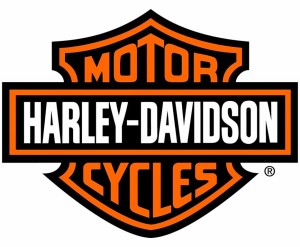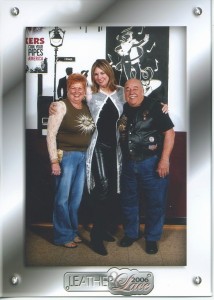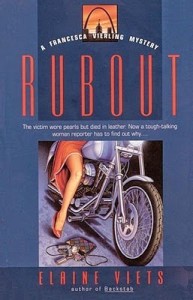Yearly Archives: 2014
Reader Friday: What’s Your “Island Scene”?
A while back, Kris (PJ Parrish) wrote a great post in which she described writing as a process of creating “scene islands”, connected by “transition bridges”.
Think of the scene you’re currently working on. If you think of that scene as an island, what would you name that island? Story-wise, what important thing is happening in this scene?
First Page Critique for: Not Useless
For your enjoyment are the first 400 words of Not Useless, submitted anonymously for critique by a daring soul. My feedback will be on the flip side. Please join in the conversation with constructive comments. Thanks!
NOT USELESS
Quentin felt like a fly caught in a pitcher plant. The old woman had lured him with great promises, but they had been lies. If he didn’t escape, she would destroy his career, his dreams. That would kill him.
Dr. Windsor had her back to him now, kneeling in her space suit in the gray rubble of the crater’s ejecta. Boulders, some the size of New York taxis, made her look small against the planetoid’s monochrome landscape. She bent over a small box. Instead of a legendary scientist, famed for discovering exotic extremophiles, the old woman reminded Quentin of a retiree playing with her little insect hobby. Pitiful. He’d find nothing for his doctoral thesis while working with her.
Yet, many people still respected the exoentomologist for her past work. Quentin craved a recommendation from her.But he also wanted off this useless expedition. He sighed. How could he get both?
“Mr. Stone. If you plan to continue sighing, please disengage your helmet microphone.” Dr. Windsor’s voice crackled in his ears, but she did not look up from her work.
“Oh, I’m sorry, Doctor. I was just thinking of…um…Earth.”
“Important discoveries are not found on Earth, Mr. Stone. They are found out here at the edge of interstellar travel. I selected you because I thought you shared this vision. Was I mistaken?”
“No, definitely not, Dr. Windsor.”
“Good. Now, please bring me the rest of the light lures.”
Quentin winced. “The rest? You said two packs were all we needed.”
Windsor stopped working and turned to Quentin. He was glad he couldn’t see her face behind her helmet visor.
“Do not be a buffoon, Mr. Stone. I distinctly said bring four packs of light lures. Did you forget some back at the ship?
“Ah, well, ah, when you said—”
“Mr. Stone, I have no time for idiocy. Return to the ship and retrieve them now.” Windsor resumed her work.
“Alone?” said Quentin. “But we’re supposed to travel with a partner.”
“I am aware of protocol, Mr. Stone,” Windsor said, as she continued working. “However, your incompetence has cost me valuable time. If I return, I cannot set enough live traps to make this stop worthwhile. We have a tight schedule and cannot ask the others to wait for us. Follow the guide cable and you will be fine. Do you think you can handle that simple task, Mr. Stone?”
Feedback:
The author teased me into this intro and I was first surprised by the fact this is on a planet or planetoid. My second surprise came when the doctor heard his sigh over the mic to bring the reader from Stone’s internal monologue and back into the scene. The tone is set for calamity. I liked the tension between these two. Stone’s internal thoughts are short and set the stage for what will come next. I would expect something to happen while Stone goes back to the ship, if the foreshadowing holds true.
It’s hard to tell if Stone is a main character, but the set up implies it. The way the author teases us deeper into this story and foreshadows something ahead for Stone, I would turn the page and keep reading. With Stone drawn into his worries about his thesis, it would appear he has done this procedure many times before and is not distracted by what he’s seeing on the planet, but I would like to know more about the setting. Below are some questions I have. The answers may add some depth to the scene.
Questions:
What is his career? His doctoral thesis? Entomologist too?
Where are they? Which planetoid or galaxy? Any other colors besides a monochrome one? Number of moons? Can Earth be seen? Location, location, location.
What does it look like…feel like…to be encumbered by a space suit? Are they weighted or tethered?
Staring through a visor, what does he truly see of the planet? I’m assuming there is zero gravity, yet she’s working with a box that’s not adrift or unsteady.
I’d like to see more mood or tone to this. I’m not sure if this will be a suspense story. The foreshadowing is all I have to go on. A suspenseful tone can be enhanced by simple word choices that give the narrative an edgy danger. Or perhaps a mishap of something small can remind Stone how dangerous things can be.
I’d like more setting and tone to fill this opener out. With only dialogue, the scene feels too sparse to create a world the reader will want to see in their mind’s eye. The bones are here, but in my opinion, this needs a bit of filler to broaden the world building.
What do you think, TKZers? Is there enough mood or tone to this? What would you add or change? Your feedback would be appreciated.
Finding Your Voice part II
On Monday, Clare posted a great blog on Finding Your Voice. She pointed out that it’s critical for a writer to have a distinctive voice that fits the genre and helps pull the reader into the story. Along with her post, Clare got a number of excellent comments. Check them out when you get through with my post.
Today I want to add some additional thoughts on developing writer’s voice by comparing it to performing music.
If I asked a musician to play a melody on a trumpet, then asked another to play the same melody on a cello, chances are you could tell the difference between the two even though they played the same notes. Not only does one instrument sound different from the other, but individually, they can convey a variety of emotions based upon the style and technique of the musicians. Both can play the same melody, and when combined with the timbre of the instruments and their respective artists’ style, they can also invoke feelings and emotion.
one instrument sound different from the other, but individually, they can convey a variety of emotions based upon the style and technique of the musicians. Both can play the same melody, and when combined with the timbre of the instruments and their respective artists’ style, they can also invoke feelings and emotion.
In a similar manner, when it comes to defining the writer’s voice, it can be the combination of the author’s attitude, personality and character; the writer’s style that conveys the story. It’s called the writer’s voice. Voice is the persona of the story as interpreted by the reader.
So how do you find your writer’s voice and keep it going throughout your manuscript? Here are some tips.
First, start by writing to connect with your readers, not to impress them. Your voice is the direct connection into your reader’s head. Some might argue that the words are the connection. But I believe that the words are like the notes on the sheet music that a musician reads as he or she plays that trumpet or cello. Those notes printed on the musical staff have no value until they are “voiced” by the musician.
Likewise, those written words on the printed page of a book have no value until they are interpreted by the reader. With the musical example, the styles and techniques of the musicians are the connection to the listener. With the novel, the writer’s voice is the connection into the reader’s imagination. The pictures formed in the mind of the reader are strongest when the writer’s voice is solid, unique and original.
The best way to develop your writer’s voice is to simply let the words flow without restrictions—let them speak from your heart. Feel the emotions that your character or (first-person) narrator feels.
Equally important, avoid comparing yourself to other writers. Doing so can be restrictive or downright destructive to your voice. You are who you are, not someone else. Write from your heart while not trying to copy your favorite author. The writer’s voice you need to create is yours alone. There’s nothing wrong with being inspired by other writers, but convert that inspiration into your own style, your own voice.
It’s also dangerous to compare yourself to other writers or become jealous of their style or accomplishments. Doing so always leads to frustration and a product that is not totally yours. If you’ve tried to inject someone else’s voice into your words, the lack of honesty will always come through to the reader.
Finally, as you work on your manuscript, try to visualize a specific reader and write directly to that person. Remember that you’re trying to communicate, to make a single connection with a single reader.
Just like a musician playing the notes on the sheet music, finding your writer’s voice is the process of communicating with your reader the emotions and feelings you feel through your characters. You can’t learn voice, but through writing, more writing and even more writing, you can develop a distinctive, unique writer’s voice.
Must our heroes be handsome?
This summer I attended an interesting workshop by a bestselling, Pulitzer Prize-winning author, who discussed his approach to crafting thrillers. It was his opinion that main characters need to be handsome (or beautiful, if female), intelligent, and successful. As he described his approach, “I write a main character that women want to sleep with, and men want to be. ” In other words, more James Bond than Monk. His reason for his writing main characters that way? “I like to write books that sell.”
It’s an interesting thought. I’d always assumed that a main character didn’t need to be particularly genetically or intellectually gifted. I always assumed that overcoming adversity was what made a hero appealing to readers. But when I think back about books I’ve particularly enjoyed–SILENCE OF THE LAMBS, THE HUNT FOR RED OCTOBER, COMA–I have to admit that those protagonists were handsome and brilliant. I just never thought of those characteristics as being requirements for popular appeal.
What do you think? Is physical beauty, in particular, central to creating an appealing main character?
Finding Your Voice
Yesterday I read a great piece by Lev Grossman (author of the Magicians trilogy) on finding his author voice through writing fantasy fiction (‘Finding my Voice in Fantasy‘). He admitted that he felt something was missing in the two ‘literary’ novels he had published and that, when he was producing those works, the writing came slow and hard as if he hadn’t quite found his ‘voice’ yet. For Grossman it was writing fantasy, and the liberation of writing against the literary expectations he had imposed on himself, that gave him the chance to discover his true ‘voice’ in his writing.
For Grossman “it was the most profound, intense writing experience I’d ever had. The icy grip of reality on my fiction cracked, and a torrent of magic came rushing out”. I love that line – for it encapsulates beautifully the experience of truly being in the writing ‘zone’ when your author voice takes over and allows the story to emerge.
I’ve recently delved into the writing world of YA and middle grade fiction and what occurred to me was most surprising. I expected my YA voice would be an easier one to access (I still feel most days like I’m 16 after all…) but instead, it was the middle grade world that set my voice free. Maybe it’s because I feel attuned to my nine year old twin boys’ world, perhaps it’s because I still read aloud to them each night and these books tend to be for the most part middle grade fantasy novels…who knows? Whatever the reason I felt the exact sense of liberation that Grossman describes.
I remember when I was writing my first book, Consequences of Sin, I certainly felt as if I was channeling the voice of my heroine Ursula Marlow – and when I returned to writing the third book in the series, Unlikely Traitors, that voice was inside me, ready to be channeled once more. I hesitated before deciding to write a middle grade book because I wasn’t really sure I’d be able to access that kind of ‘voice’ within me. To my surprise the voice that emerged was just as strong as Ursula’s.
The upshot of all this, is that I think many writers need to dabble in different genres to explore aspects of ‘voice’ which they may never have expected. I know plenty of writers who consider themselves ‘literary’ and, by default, superior to those of us who write commercial or genre fiction. For many of them the act of writing is a struggle (sometimes I wonder if they feel that the angst of it all somehow adds to the mystique). I wonder, if they allowed themselves the freedom to explore other genres, whether they would discover a new and more accessible ‘voice’ within them. I can only hope that others take Grossman’s lead and realize, as he did that:
Isn’t that great?!
So tell me TKZers how did you discover your writer’s voice?
Trouble Is Your Business
Back It Up
Reader Friday: Your Greatest Challenge?
Bikers, Pine-Sol and Money
Where is the best spot for a book signing?
Writers debate this question endlessly. When we’re signing in a bookstore, should we have a table by the door? A quiet alcove? A special room?
How about when we give a speech? Should we have our own table piled with our books? Where should it be placed? By the door? Near the podium?
Sometimes, the best spots are the most unexpected.
My first mystery series is the Francesca Vierling novels, and they’re still in print as e-books and paperbacks. My heroine is a six-foot tall St. Louis newspaper columnist, which is what I was, until I got fired from the paper for insubordination.
“Rubout,” the second book in this series, takes place at the annual bikers society ball in St. Louis, where one thousand Harley riders gather.
It’s called the Leather and Lace Ball.
The ball is not open to the public, and the bikers wear the wildest outfits you’ve ever seen. However, over the years they have started to dress more sensibly with some of them even wearing helmets such as the AGV K-3 SV! One year, the queen of the ball wore a black lace body stocking and cowboy boots. That was all.
And she was a natural blonde.
The king wore a black leather vest, black chaps, and a G-string. We women were trying not to stare at this G-string, because his girlfriend was an over-the-road trucker. We were afraid she’d beat us up.
One woman was foolish enough (and drunk enough) to dance with the king. They were dancing cheek-to-cheek, so to speak, and I’m not talking about his face. The king’s girlfriend saw them, grabbed the poacher by the hair and said, “Leave him alone.” Her voice was so flat and scary, I backed away.
What if the poacher turned up dead? This became the basis for “Rubout.”
The St. Louis bikers helped me with this book, on the condition that I not make the killer a biker. These were members of the Kirkwood HOGs, which is short for Harley Owners Group. Despite the way the bikers looked, these were not Hell’s Angels. Most were family people, working men and women who liked to dress up in biker leather and wear tattoos that didn’t wash off.
I asked them about their favorite T-shirts. One guy told me his, and his wife hit him on the head. The T-shirt said, “If you can read this, the bitch fell off.”
When “Rubout” was published, the bikers gave me a signing at their meeting in a VFW hall.
They said, “Don’t worry, honey, we’ll put you where everyone can find you.”
It wasn’t by the podium, either.
The bikers put me at a table way in the back, between the men’s and women’s restrooms.
I sat there and wondered, “Does John Grisham sit between the bathrooms to sell books?” “Does Mary Higgins Clark get stuck by the johns?”
Then I didn’t have time to brood. The bikers drank a lot of beer, and soon they were heading for the restrooms.
They noticed the books on their way in. And bought them on their way out.
You never know what’s going to be a good signing site.
Now Pine-Sol smells like money. Cheers!








